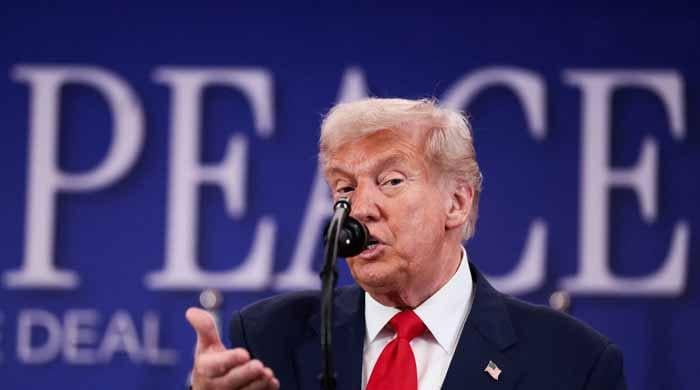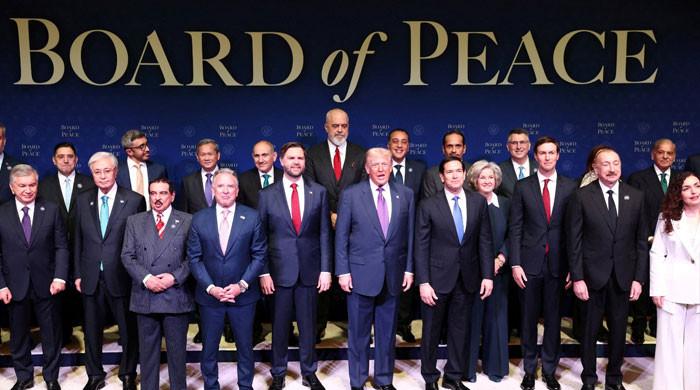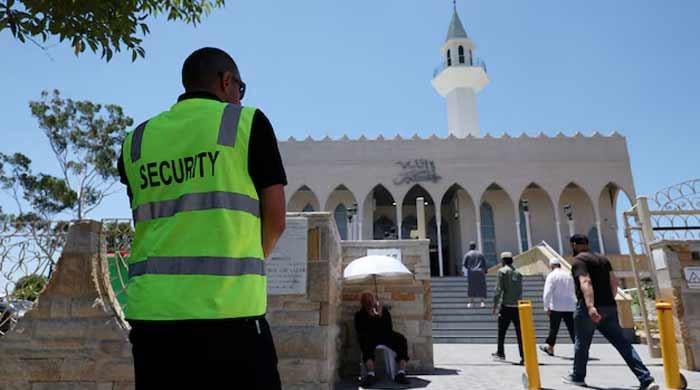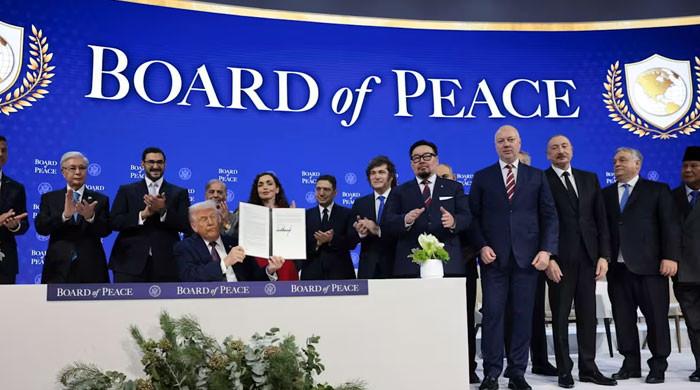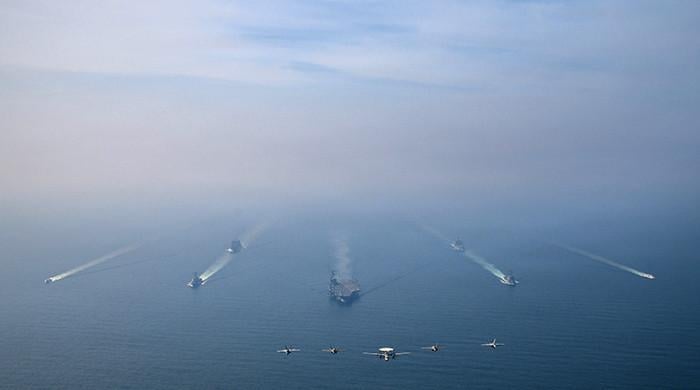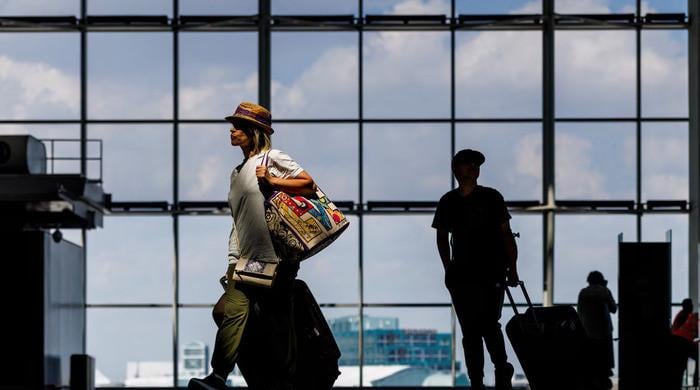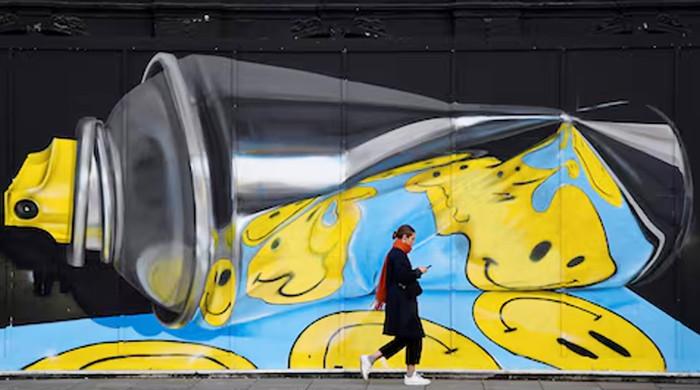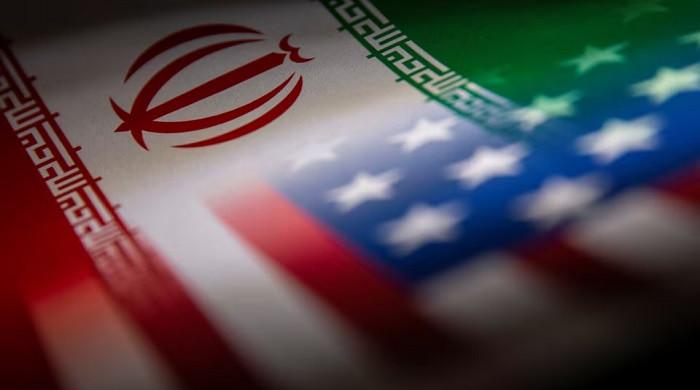Protesters rally outside Indian High Commission in UK on Youm-e-Istehsal Kashmir
British-Kashmiris — belonging to JKLF, PTI, PML-N, PPP, and JUI — protest outside India House in London
August 06, 2020
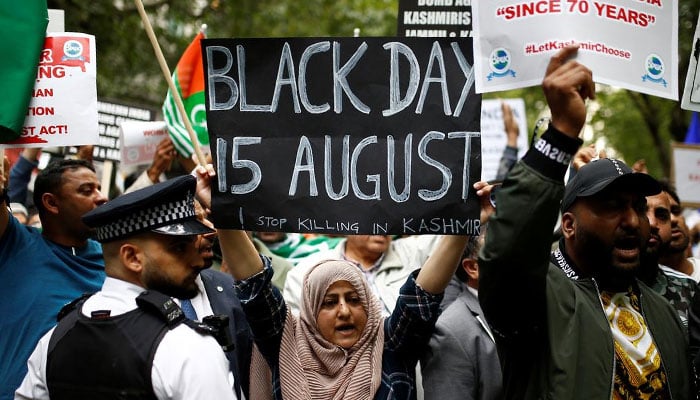
LONDON: More than 1,000 people protested outside the Indian High Commission here in the British capital to voice their anger against India's illegal occupation of Kashmir and the revocation on August 5, 2019, of Article 370 of its constitution by Prime Minister Narendra Modi's Hindutva regime.
On August 5 last year, India had unlawfully changed the special status granted to Kashmir under Article 370 of its constitution, effectively ending any illusion of secularism in the world's second-most populous country and snatching Kashmiris' status, identity, and nationhood.
British-Kashmiris — belonging to the Jammu Kashmir Liberation Front (JKLF) and Pakistan's ruling party PTI, as well as the PML-N, PPP, National Awami Party (NAP) UK, and the JUI — attended the protest in Aldwych, outside the India House guarded by over 100 police officers.
Protesters slammed Modi's fascism in regards to Kashmir and held signs carrying various slogans, including "Indian Butcher Army out of Kashmir," "Kashmir Nuclear Flash Point," "Stop Genocide, Stop Modi Now," "Free Kashmir," "Implement UN Resolution," "Stop Modi's Repression," "No to Scrapping of Article 370," "Stop Killing in Kashmir," and "India: Stop Blinding Women and Children in Kashmir," among others.
Chants against Modi's fascist regime, led by the Bharatiya Janata Party (BJP), were also raised, with protesters raising their voices in favour of the freedom of Kashmiri people. The demonstrators voiced their fury over India's brutal lockdown in the Muslim-majority region since more than a year.
The Kashmiris living in the occupied territory have seen a complete media and communications blackout, with Internet and phone lines severely disrupted. In addition, India issued a curfew order on August 4 and 5 in order to avoid mass protests and repress the right of free assembly in the Himalayan region.
Earlier, the Genocide Watch had issued a stern warning regarding India's planned violent actions in Kashmir.
At present, it is estimated that there are around 800,000-900,000 armed Indian soldiers in occupied Kashmir who systematically target and kill unarmed civilians. According to 18 special rapporteurs and UN experts, human rights have seen a "free fall" in the valley.
Speaking outside the Indian High Commission in the UK, protesters said August 5 marked a whole year of one of the saddest chapters in the history of the Kashmiri struggle. India's move last year made the valley's oppressed people refugees of their own land, the speakers added, calling on the international community to end its silence over the years-long state-sanctioned aggression.
The speakers said India snatched Kashmiris' ownership rights and national identity and made huge promises but ended up usurping everything from the people in the occupied region.
Protest leaders added that the international community should impose sanctions on the Indian government over its involvement in the genocide of Kashmiris.
The Indian High Commission, on the other hand, remained shut throughout the day to avoid last year's scenes when around 20,000 protesters had laid siege to the building, demanding the government to end the lockdown in Kashmir.
The protesters also noted that the Western world had only come to know about living under a lockdown in the past four months — referring to the coronavirus pandemic — but the Kashmiri people have known how that felt since the start of Indian occupation more than 70 years ago.
They said Kashmiris had been living in the world’s biggest prison since August 5, 2019, and that it was moral duty of the global fraternity to take notice of their rights.





